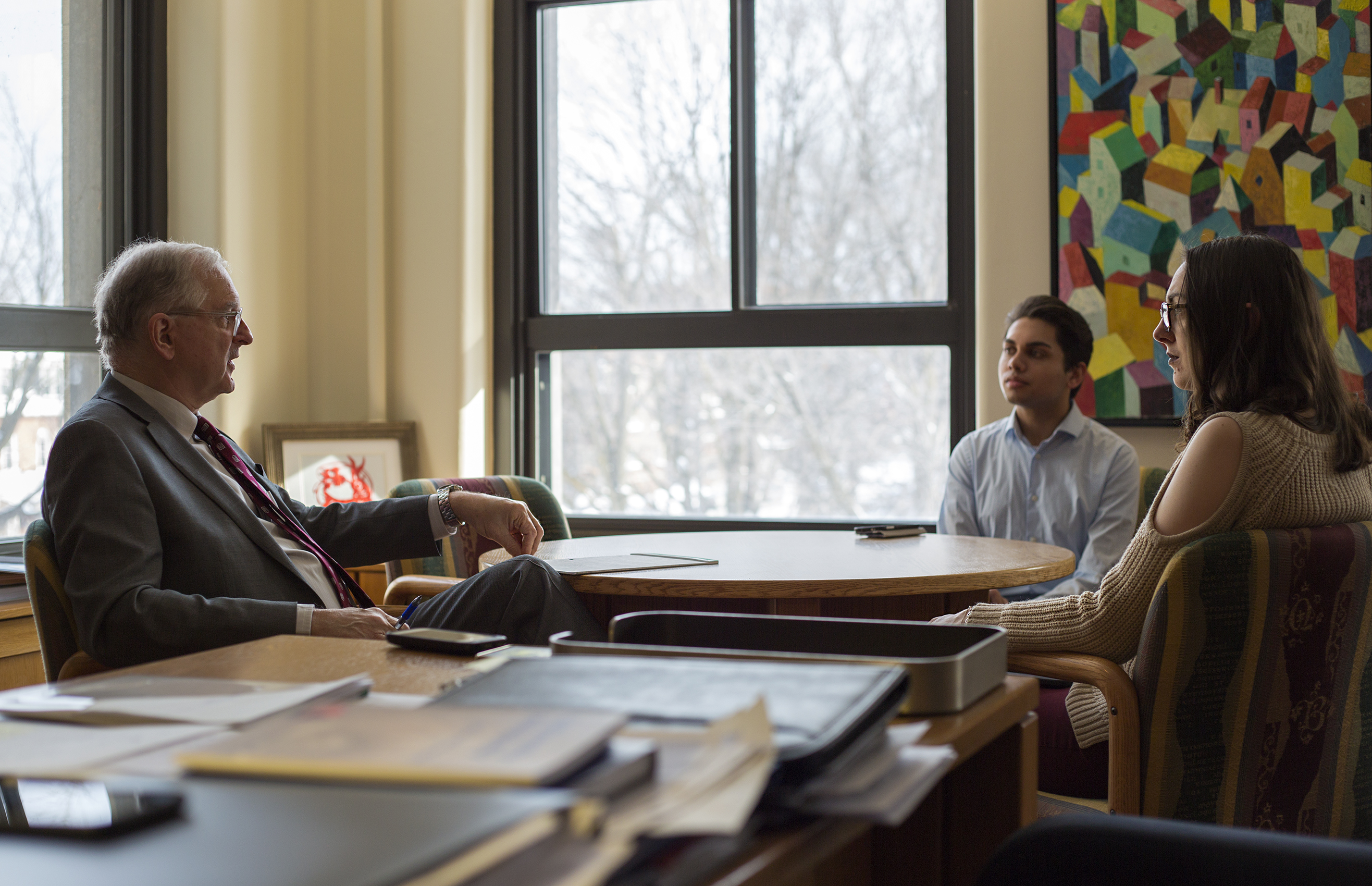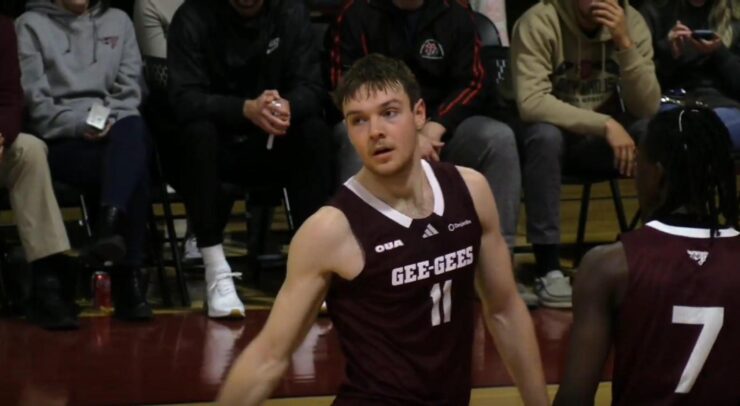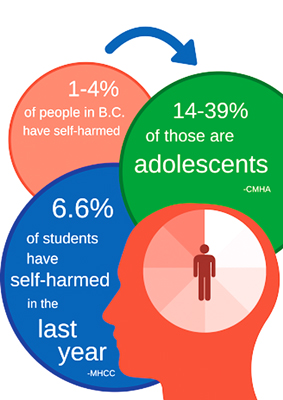Frémont talks mental health, sexual violence, and food insecurity in exclusive interview with the Fulcrum
On Thursday, March 16, Jacques Frémont, president of the University of Ottawa, sat down with the Fulcrum to discuss his first year on campus and his vision for the 2017–18 school year. Frémont shared how he hopes to make mental health services more accessible, how he will address sexual violence and food insecurity on campus, and how his human rights background translates into his work at the U of O.
The Fulcrum: The U of O has been subject to scrutiny in the last few years due to sexual assault cases involving the 2013–14 hockey team, as well as the Mélodie Morin case last year. While the university adopted a policy on the prevention of sexual violence last June, how else do you plan on using your new position to prevent sexual violence at the university?
Jacques Frémont: It is a concern for every university, and we are part of the pact. As you mentioned, we’ve adopted the policy, and that was after a good process where everyone involved had a word and people negotiated things. I’m not saying that we have the best—I don’t know what is the best sexual violence policy, but we do have one, and certainly my priority is to implement it and see where it works properly.
And I guess we’ll have to see in a few years’ time how it can be improved. And we have to learn with what we’ve done this year. It was voted on in June, which was just before I arrived, so we’re still in the process of making it happen. We’ve taken the measures we said we would in terms of what to do, including having officers dealing with that, including having an internal committee overseeing everything.
We’ve worked with the student association for the (return) to classes in September, and there was some training involved. Everyone took it very seriously, and I think that’s how it should be done, but we should not release the pressure. We should really be on the edge on that issue, and keep working on it, so it’s very important that we do our best in implementing that policy.
F: In a recent interview with Mayor Jim Watson, one of our reporters had the opportunity to discuss student food insecurity. What will you do to mitigate food insecurity on our campus?
JF: You know, food security, it’s a sign of the times. It testifies to the real difficulties and challenges some members of our community have, and I think this issue should not be taken lightly. Certainly we have been working to bring resources ahead in terms of support for the students and student services. Budget-wise, for students in special difficulties, we try to support them.
And if there’s a student initiative in terms of food security—there seems to be—I think we ought to be part of that equation. You can’t study on an empty stomach, let’s be realistic, and the phenomenon is more than an empty stomach. It’s a challenge, and I would say, “Let’s work together.”
F: It’s common knowledge that mental health issues run rampant among university students. However, many students feel dissatisfied with the on-campus counselling and support services. Are you currently working on anything to improve mental health services for students?
JF: Mental health, again, is a huge challenge, and it’s a challenge for all universities in Canada. But much effort is going into that already. Is it enough? Certainly not. But I know our services are overburdened now, and part of our responsibility is to provide support in a timely manner, really, because time is also of the essence in many cases. I was discussing that with my team the other day, and part of the challenge (is that) we get nothing from the state, so this has to be taken from the general budget, and it is taken from the general budget, and it’s fine like this. But at some point, we wish we could provide more support.
So I don’t know how we’re going to manage to achieve that, but what’s important is I hope that people in emergency cases have access to all they need. We had an incident yesterday that reminded us how fragile the system is, and it’s always a defeat when people face mental health problems and are not taken up by the system. It’s a grave concern.
Issues of accessibility for me are a challenge, and an absolute necessity … the challenges are, if we had a lot of money, it would be much easier to deal with that. Again, the demand is growing year after year, and we have to face that. Not only because it’s the law, but because it’s the decent thing to do.
F: How has your human rights background contributed to your work at the U of O this past year, and how will you use it in the coming year?
JF: This year, over and above getting to know the place and the people and how everything works, I had two major projects. One was with internationalization and the other is with diversity and inclusion—that comes directly from that background. I’m in a hurry. I want the place to be a model in Canada in terms of diversity and inclusion.
And there have been various allegations, and some might be right, and some might be wrong—I don’t know. But what I want to identify is, if we want to become a model, where are the systemic blocks? Where are the places which we don’t see, which might seem to appear neutral but still produce discriminatory results in terms of hiring students, in terms of student life, in terms of faculty members’ characteristics.
It’s especially important for the U of O given the diversity of our campus—and that’s striking. That’s one of the smashing surprises I’ve had—how diverse, how rich our campus is. But that in turn imposes duties to have a place free of discrimination and harassment.
I think some of the recommendations of the committee will (be made) during the summer … then it will set an action plan to see year to year how we can progress and how we can measure that progress year to year so that we are a better place.
F: As this year ends, what is your vision for the 2017–18 school year, and what are the main goals that you want to accomplish?
JF: Wow, quite a question! I’m not quite there yet. First we have to do a short-term reset in terms of financial conditions, because you know there are challenges there, and we’re not far from a balanced budget, so that is one of the priorities.
Another one of the priorities will be to start implementing the two reports from the two committees. I think we ought to move quickly. Especially (with) internationalization. We have the privilege of having many international students, but the international experience has to be much, much deeper and wider than that. And our relationship with the rest of the world and being an actor in terms of higher education on the world stage is crucial.
We have to make sure that these foreign students are well-integrated, that they are happy and that they will become our ambassadors, (and) we have to internationalize the teaching and the research being conducted on the campus. I think it should penetrate everything we do, we teach, and as we live in a community.
Next year we’ll have a good conversation concerning bilingualism and the Francophone part of the university. Are we doing the best? What are the specific challenges met by Francophone students, and what are their privileges or advantages?
We can’t transform everything in one year, but if we can measure that there is progress and that people feel it is a better place in all sorts of respects, then I say I’ve done my job. It’s easy in universities to talk and talk and talk, and no action. And I like to talk the talk, conversation is very important, but then I want action.










